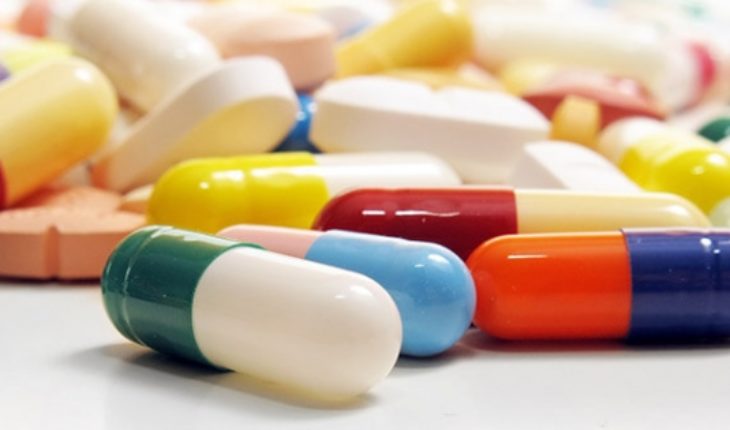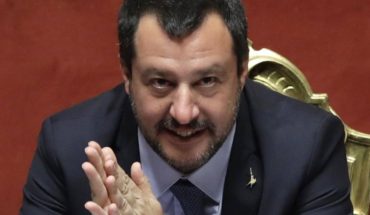the pharmaceutical market is a good example of an imperfect market, where several factors distort your performance and end up raising prices. A particularly important factor in relation to this effect is the asymmetry of information. Consumers (in this case, patients) typically have incomplete and inaccurate information about the drugs, and therefore it is not them no choice but to rely on the doctor who will prescribe them and chemical pharmacist who dispense them a certain medication. This Act of confidence of society to health professionals, forces to maintain the highest possible standards in terms of quality of the prescription, protecting it from influences whose primary goal is not the direct benefit of the patients.
The pharmaceutical industry for its part, through its robust marketing departments spend a third of their profits on advertising, which corresponds roughly to double the investment carried out in research and development of new drugs. This advertising is mostly directed to physicians through the medical visit, the payment of tickets and registration to courses and conferences, delivery of different kinds of gifts, etc. As all marketing and promotion strategy, these actions of the pharmaceutical industry have purpose increase sales of their products. The majority of physicians are familiar with these advertising campaigns, although they tend to ignore how effective that are. There is evidence that receiving medical visitors, gifts, or even to attend a talk by an opinion leader paid by a pharmaceutical company, determines an increase in the prescription of drugs promoted at the expense of others, even when the latter may be more effective, safe or cheap.
On the other hand, we know that the expense of pocket on health of Chilean households is high (among the highest in the OECD) and that 38% of this expenditure is earmarked for drugs. Is clear from these data the urgent need to regulate the national pharmaceutical market with the goal of reducing spending on drugs, being the protection of the medical prescription with respect to commercial influences before mentioned one of the points Central. In this context fits the legislative initiative known as project of Act drugs II, entered Congress the year 2015 and currently in its second constitutional procedure. What can be expected from this initiative?
The main purpose of Act drugs II project is to reduce spending on drugs more effectively than its predecessor, the Act drugs I, through a series of mechanisms that come together in favouring the interchangeability of original medicines) with mark) and copies (which in Chile are sold with and without brand, in the latter case through its international non-proprietary name or DCI). This purpose is quite reasonable because medications marketed under the name of fantasy tend to be several times more expensive that generics (copies without brand marketed through its DCI), explaining in part high expenditure of pocket that performs the Chilean population. It is worth noting that the only difference between a copy branded and unbranded, is that the first is object of marketing actions by the laboratory that commercializes it. By the way the price of a medicinal product copy with brand tends to be several times greater at one unbranded, matter that nothing says about the quality of one and other.
A second objective of the Bill is to improve the regulation of the conflicts of interest that may occur in the context of the relationship between pharmaceutical industry and medicine. This point would make it possible to protect the prescription of the influences of marketing and thus lower spending on drugs.
Hovering as a promising legislative initiative, however, runs the risk of being severely averted following the indications to the Bill submitted by the Executive on May 7. Some of these indications, at least the more publicized, aim to increase the transparency of prices and that direct selling drugs are available in supermarkets and similar stores. Unfortunately, to make a closer examination, we find that the directions of the Government proposed a series of amendments that, if approved in its passage by Parliament, desvirtuarían the original purposes of the project. These proposed changes appear to be oriented to protect the marketing activities described above and thus then protect the commercial interests of the pharmaceutical industry.
To better understand the impact of the Executive instructions, review some of the major mechanisms proposed Bill to promote the availability and use of generic drugs: (1) the obligation that the doctors prescribed by DCI (the current legislation requires, conversely, to prescribe by trademark), (2) the obligation to register and distribute not only brand, but also their respective generic drugs, and (3) the regulation of the marketing of the laboratories that laboratories to the doctors (prohibiting the medical visit in public hospitals and making transparent the flow of money from the laboratories to the doctors and health institutions).
It is important to highlight the emphasis that puts law drugs II project in the regulation of the medical prescription. Trademarks are the medium for the promotion of drugs with name of different pharmaceutical companies (same medicine, as for example paracetamol, comes to have over 15 brands competing with each other). As noted above, drugs that are marketed under a fancy name are several times more expensive than generic unbranded of the same active ingredient, this implies an improvement in quality. The latter is given by bioequivalence studies and good practices of manufacture manufacturer laboratory accreditation, having totally independent conditions marks or not. Therefore, any public policy that seeks to rationalize spending on drugs should deter prescription brand.
Let’s then raised by the Executive and mode indications as these blur the original spirit of the Bill: first, proposes to change article 101 of the code on how to how to prescribe medications. As mentioned, the original project modifies this article forcing the doctor to prescribe by DCI only. The indication of the Executive, on the other hand, puts first the possibility to prescribe by fancy name, although noting the obligation of writing the DCI. We do not see another reason that the lobby of the pharmaceutical industry in this change, without altering the bottom of the article, returning him to give a leading role to the brand. This measure does not guarantee best quality prescription, but a more expensive for patients.
Second, is the removal of article 129p of the original Bill, which restricts the presence of visitors physicians at public hospitals allowing only their actions in the Pharmacy and supply committees. This point seems particularly serious, since it would withdraw a regulation that is consistent with the evidence regarding the negative effect that the medical visit has on the quality of the medical prescription. To greater exposure to representatives of industry, doctors increase the prescription of drugs with brand, more expensive that the unbranded, without that it means higher quality. In addition, medical visitors manage to influence prescribing mode increasing rates of prescription of molecules that take less time and therefore have more safety and effectiveness profiles poorly established than others with one history of more long and they are usually cheaper. In our view, a more suitable proposal would not only keep the article as it is originally posed, but also to extend the veto to the medical visit to the hospital pharmacy committees and private medicine, where there are also patients you are affected by this type of practice.
Third, the amendment proposed to article 97, concerning that any pharmaceutical product that is recorded and distributed by the fancy name, have to register and also distribute the same product by the DCI (viz. as generic drug) is removed. The original idea is that Labs keep manufacturing generic and do not diminish or put an end to its production, favoring their branded products, as it has happened so far after the promulgation of the Act drugs I. This point is important to ensure the availability of generic drugs and thus possible interchangeability. Little point in a policy requiring pharmacies to offer to the public of Bioequivalent generics, if it is that these are not being manufactured by the laboratories.
Fourthly, indications of the Government withdraw Bill proposal on labeling of medicines, pointing to the DCI addresses prominently above the name of fantasy in the drug case, leaving this point to be resolved through a regulation. So will take away the guarantee that this significant step forward for the benefit of the exchangeability is concrete and would provide space for the industry lobby to act much more effectively in the instance of preparation of the regulations for labeling. While there are aspects that could be reasonable settling on the occasion of the Regulation (e.g. should the labeling of products that contain multiple active compounds), we believe that you for the vast majority of products that possess one or two active compounds, the law should make clear the mode to properly visualize the DCI above the mark on the labeling of the drug.
Finally, we must point out that in conjunction with measures to optimize access to generic medicines, it is essential to increase the availability of Bioequivalent generic, that is, to ensure interchangeability in terms of quality, efficiency and security with regard to the innovative medicine (this does not mean that generic drugs that still have not demonstrated bioequivalence are not quality, but lacking this warranty). Bill comes to full consciousness in parallel with policies for implementing a requirement of bioequivalence, which date back to the year 1995, in spite of its application has been incomplete. The unacceptable delay in its effective implementation, given space to put in doubt the quality of drugs sold in our country, questioning often mobilized by covert interests contributing little to rationalize spending on drugs in our health system.
We believe that this requirement of bioequivalence should move more resolutely towards the inclusion of all generic drugs that are marketed in Chile, assimilating the country to current international standards. A step in this direction is in the Act drugs II project, because it forces pharmaceutical to distribute not only drugs with brand, but also their generic equivalents through the DCI. There is still the opportunity to incorporate new directions to the draft law, aimed to ensure full listing of Bioequivalent generic that should be available to the public in pharmacies, as well as to lay down a timetable for the withdrawal from the market of those drugs which have failed to comply with the quality standard.
In short, the set of regulatory initiatives contained in the Act drugs II project, which promises to be a clear progress in the field of regulation of the pharmaceutical market, runs the risk of being severely distorted in the event that these indications of the Executive to thrive in its passage through the lower House. The proposed changes do not explain from the possible benefit of health for the population, because they are not running to improve the quality or the price of drugs. Finally, we do not have more than raise a reasonable doubt with respect to the role that is here playing the pharmaceutical lobby, trying to protect their commercial interests.
Poured in this op-ed content is the sole responsibility of the author and do not necessarily reflect the editorial line nor the counter position.





